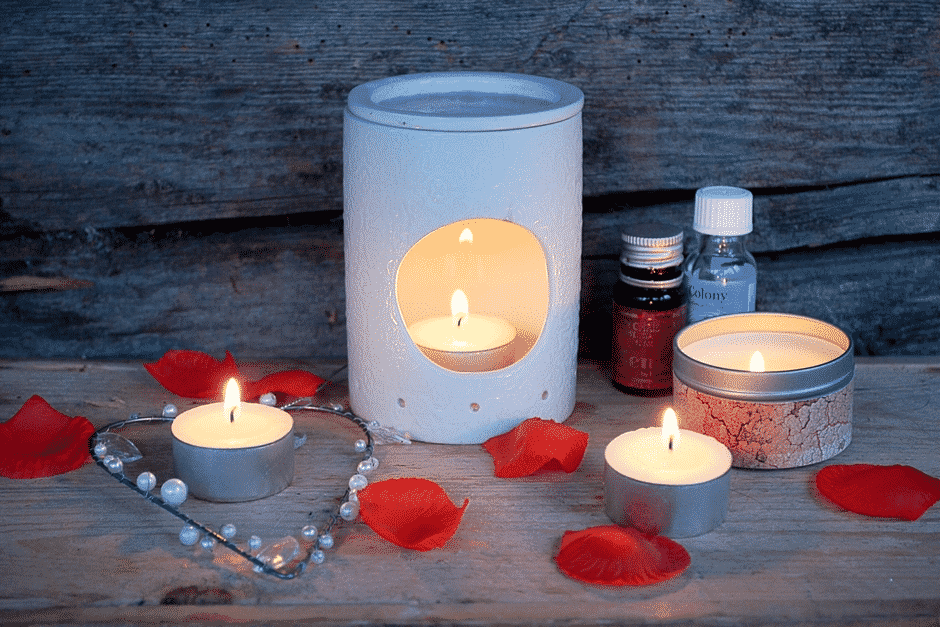More than just a way to make a space smell pleasant, aromatherapy can be a powerful tool to combat all kinds of health conditions and daily discomforts ranging from respiratory difficulties to mood disorders. Essential oils are the basis of any aromatherapy treatment. These oils are derived from a variety of plants, and each has unique applications.
There are a variety of ways to use essential oils for aromatherapy, from diffusing them into the air to applying them directly to the skin. Depending on what you’re treating and which oil you are using, the best method for use will change. Keep reading to learn more about popular essential oils and their uses.

Best Uses for Diffused Oils
There are different ways to diffuse essential oils. Perhaps the most popular method today is ultrasonic diffusers that use vibrations to vaporize water. Drops of essential oils are added to the water and become part of a mist emitted by the ultrasonic diffusers. These are especially common in people’s homes and in businesses that want to cover a large area.
Some people choose to use individual oils to diffuse, while others like to utilize pre-made blends that are curated to treat specific conditions. Some companies, like AromaTech, even make blends that are meant to mimic complex fragrances like petrichor and ones that evoke a particular city.
Respiratory Conditions
Because they can be inhaled easily, diffused oils are great for providing relief from chronic respiratory conditions like asthma and bronchitis as well as acute respiratory problems caused by illnesses like colds. Some of the best essential oils for treating breathing problems include:
- Eucalyptus. Eucalyptus is believed to help clear mucus and other debris from the respiratory system, making it easier to breathe. It can also reduce inflammation, helping to open airways. Eucalyptus can also provide relief from coughing.
- Peppermint. Because it contains menthol, peppermint oil works well for relaxing muscles in the airways that can constrict during asthmatic episodes.
- Tea tree. Indigenous Australians have been inhaling essential oils derived from tea tree leaves for generations to help soothe coughs.
- Cypress. Cypress oil contains the camphorous compound camphene, which works as an anti-inflammatory that been shown to improve respiratory function.
While not a replacement for medications like control inhalers, these oils can have a marked effect on a person’s ability to breathe. Some oils are not suitable for treating extreme causes of troubled breathing and not all are safe for use in children and the elderly, so it’s always best to consult a physician to make sure they’re safe for the person who might use them.
Stress and Anxiety
Your sense of smell is perhaps one of your most powerful senses thanks to its ability to influence your mood. While the connotations of certain smells can vary from person to person, there are some scents that are widely believed to have soothing, brightening, and calming effects on people’s moods, such as:
- Bergamot. Studies have shown that scent of bergamot oil can help reduce levels of the stress hormone cortisol.
- Citrus. Citrus oils like those derived from lemons, oranges, and grapefruits have all been shown to have mood-boosting properties. The sunny scents of citrus oils may be especially helpful for those who suffer from seasonal depression
- Lemongrass. Thanks to the similarity of its scent to the citrus family, lemongrass essential oil can help alleviate feelings of anxiety and encourage relaxation.
Consider putting a few drops of these oils in a diffuser in your office or living space to allow these scents to saturate the space before a big meeting or when you’re feeling stressed.
Sleep Support
Not getting a good night’s sleep can have wide-ranging negative effects on someone’s health. There are many essential oils recommended by the American Sleep Association to support better sleep, like:
- Lavender. The floral scent of lavender is perhaps one of the best known in aromatherapy thanks to its promotion of calm and relaxation.
- Chamomile. Chamomile is a popular choice in nighttime teas, especially for people looking for alternatives to sleep medications. It’s a known sedative that can help people fall asleep more easily.
- Jasmine. For people suffering from restless sleep more so than trouble falling asleep, jasmine can help.
- Clary Sage. Like bergamot, essential oils derived from clary sage have been shown to reduce the stress hormone cortisol.
- Peppermint. Snorers and people who suffer from sleep apnea may find the respiratory benefits of peppermint lend themselves to a better night’s sleep.
In addition to putting these oils in a diffuser, some people like to add them to sprays for pillows and comforters.
Diffusing essential oils isn’t exclusively for treating problems. If you have a scent that you enjoy or that evokes a mood you want to be in, diffusing essential oils can be a great alternative to air fresheners.
Best Uses for Topical Oils
While some oils are work best when inhaled or smelled, others can have benefits when they’re absorbed through the skin.
Headaches and Migraines
To treat a headache or migraine, try rubbing the oil onto the forehead, temples, behind the ears, or other areas on the head where you carry tension. The best oils for treating headaches are:
- Peppermint. When placed on the skin, peppermint can create a cooling sensation. This sensation can help relieve tension and improve blood flow.
- Rosemary. Rosemary can work as an anti-inflammatory and pain-reliever.
- Frankincense. Another anti-inflammatory, frankincense can be massaged into the neck, shoulders, and back to relieve tension that can lead to cluster headaches.
Pain Relief
Some essential oils have been shown to have cooling and anti-inflammatory properties and can cause similar responses in the body to common painkillers. Like you would with a headache, it’s best to massage these oils into the skin at the source of discomfort:
- Ginger. Many people are aware of ginger’s ability to combat nausea, but it is also an anti-inflammatory.
- Marjoram. Marjoram is an anti-spasmodic that can reduce muscle spasms and tension.
- Yarrow. Yarrow is another anti-inflammatory.
- Sandalwood. Sandalwood is both anti-inflammatory and anti-spasmodic, so it’s great for treating multiple symptoms at once.
Perfume
Instead of trying to find a scent that fits you, create personal blends using essential oils. Simply blend with a carrier oil and apply to pulse points like the wrists, neck, and inside of elbows.
Carrier Oils
Essential oils are very potent substances, so they have to be diluted before they can be applied topically to avoid skin irritation. Oils like jojoba, coconut, sweet almond, and apricot kernel are all relatively scentless and will safely dilute essential oils for application.
Potential Risks of Using Essential Oils
While essential oils can be great alternatives to conventional medicine, they do have some risks of their own. Some oils are not suitable for use by children or the elderly. You should always do a patch test with essential oil before applying extensively to make sure you don’t have any adverse reactions to it. Some oils are toxic to pets, so make sure to do research before diffusing them at home if you have animals.
Essential oils can be used to treat a variety of ailments. If you’re looking for new ways to manage anything from stress to chronic pain, consider speaking to an aromatherapist about which oils and methods might be best for you.

